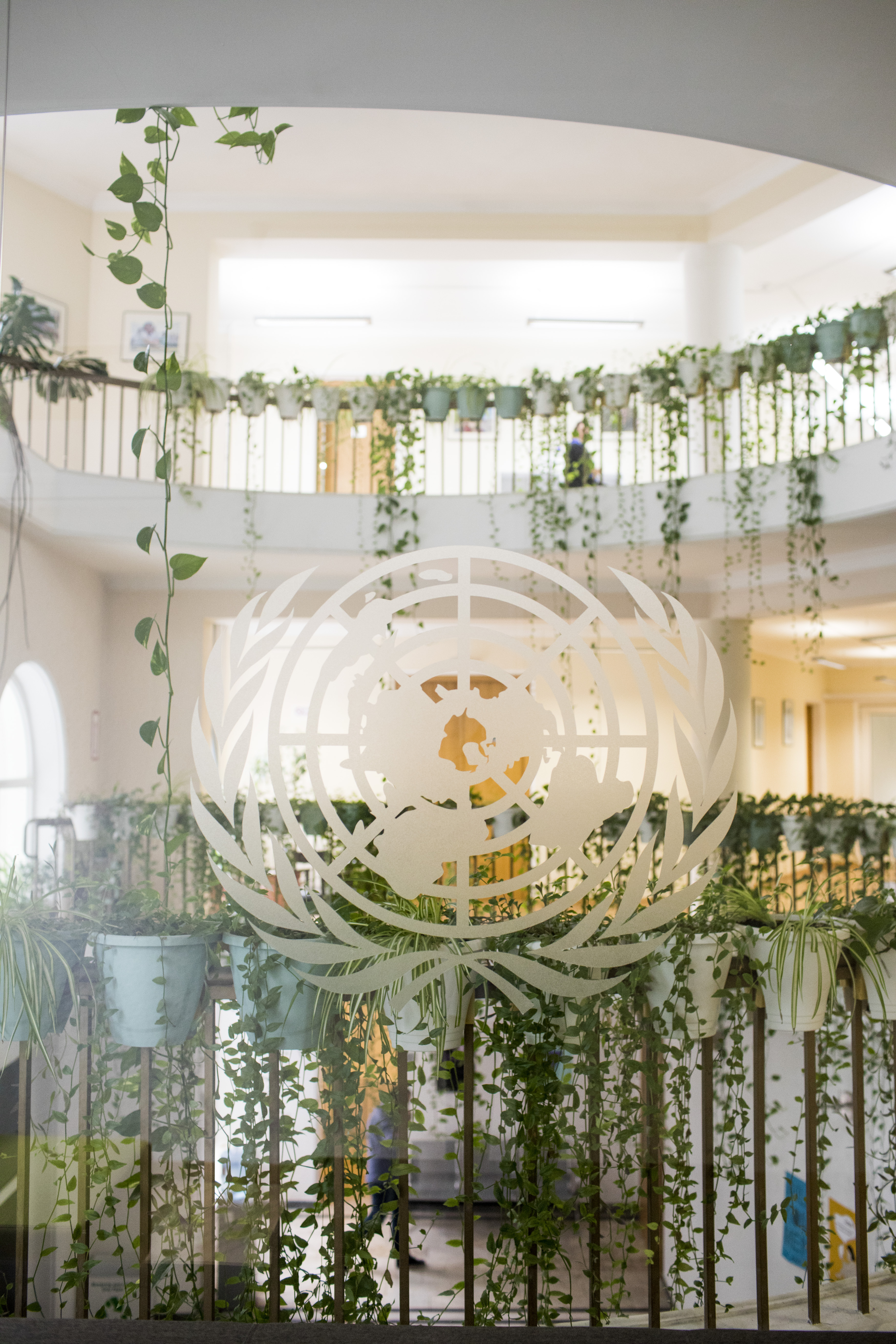Photo: Vladimir Valishvili/UNDP
The air was so clean, we could see a brighter future
In 2018, Georgia’s mortality rate due to air pollution was extraordinarily high; expenditures for treating air pollution-related diseases exceeded GEL 120 million. In a 2020 study, Georgians named air pollution as one of the country’s most important environmental problems. The pandemic made many of us rediscover how pleasant it is to go outside for fresh air and sparked Nature-is-Healing memes. More importantly, it gave us a cleaner look at our environment and showed that we can live in much better conditions if we get this unprecedented experiment right.
On 13 April 2021, the UNDP Accelerator Lab in partnership with the ServiceLab of the Public Service development Agency organized a collective intelligence workshop to answer a critical question: if the awareness of air pollution is so high, then what obstacles prevent us, as a collective, from implementing actual measures? At the workshop, citizens, NGO representatives, academics, air quality experts and activists explored the intricate relationships between everyday decision-making and wicked problem.
Why collective intelligence
According to Nesta, (the UK’s innovation agency for social good), collective intelligence is “an enhanced capacity that is created when people work together”. Synergies achieved through collaboration produce knowledge that is much more significant than the sum of individually expressed opinions. The method is not new, but the introduction of new collaborative software technologies made it particularly more useful especially during pandemic. You can learn how the UNDP Accelerator labs network is using the method to tackle various challenges faced by the planet here. The experience shows that collective intelligence is especially useful when collective action is required; mitigating air pollution is one such case.
Official reports on air quality written by the experts rarely tell us how ordinary citizens perceive the problem or how it affects their life choices. To fill this gap, we used the Nesta’s DIY toolkit, which, unlike resource-intensive quantitative surveys and focus groups, allowed us to rapidly map the systemic links between the problem’s causes and effects.
What do we know about air pollution?
- The high price of health
During the workshop, almost all working groups name allergies and respiratory diseases as primary symptoms of air pollution; stress and fatigue (topics that Georgian society rarely discusses) are considered secondary symptoms. These conditions drive demand for health-care services, increase government and individual spending and exacerbate economic hardship. Notably, poverty creates conditions in which society tolerates greater air-polluting activities because some are the only source of income for the poor. Likewise, these conditions can increase tolerance for some avoidance of air pollution mitigation practices due to the costs to the poor.
- Non-human agents caught in the air pollution loop
Losses in pollinators and poor plant conditions are other primary symptoms of air pollution. These non-human agents are essential to maintaining a life-supporting ecosystem for humans, making the symptom both a cause and an effect of air pollution. The most important observation is that the workshop participants see the environment’s health as necessary to human welfare.
It may be a weak signal that non-human agents are emerging as new stakeholders in Georgia’s environmental politics. Though the concept may seem speculative, there are nonetheless some relevant precedents in the world (such as granting rights to rivers).
- Nature/infrastructure
Deforestation and loss and poor maintenance of recreation zones contribute to increased dust particles in the air. The workshop participants mainly blamed the decline of green spaces on unreliable irrigation systems. This observation signals the demand for green infrastructure and nature-based solutions. It also attests to accepting endemic plant varieties that do not require additional infrastructure and that can lower maintenance costs.
- Dangerous traditions of open agricultural burning
Air pollution in Georgia is both an urban and a rural problem. Among its main causes is open agricultural burning, which remains widespread in the region. Unfortunately, local farmers largely overlook composting and other alternative solutions to agricultural waste. Open burning’s history as a traditional method of dealing with waste makes it difficult to convince farmers to switch to new, sustainable practices. An additional, negative contributing factor is that Georgian farmers are mainly elderly people or so-called ‘forced farmers’ with lack of training in modern agricultural technologies.
Farmers burn agricultural waste around the world. Our fellow Accelerator lab in Ukraine is already working on possible solutions by using satellite imagery and by increasing awareness of composting techniques and benefits.
- ‘Incorrect’ urban planning
Additional primary causes of pollution-related health issues include low standards of quality regulations in the construction sector and poor fuel quality in the transportation sector, paired with dilapidated public transportation options and the increase of private vehicle ownership.
Workshop participants perceived pollution in these categories to be caused by “incorrect” urban planning, arguing that the new, unplanned construction drives new traffic flows. These linkages between a city’s territorial development, resident mobility and transportation put air pollution problem under larger housing policy.
- Finding your way around reforms
The vehicle catalytic converter is a small piece of machinery that can help us better understand an intricate relationship between poverty, personal resilience and air pollution in Georgia. Although Georgians support recent reform on mandatory technical inspection of vehicles, workshop participants argued that it has turned into just another formality. They argued that some relatively “venturous” citizens use the same vehicle catalytic converter several times on different cars; once their car passes its technical inspection, the catalytic converter is removed, passed on to someone else, and the car driven without the pollution control device. The main contributing factor for this shady practice is poverty, which is among the reasons that Georgian society tolerates the fraud and closes an eye on its impact on the air pollution problem.
- Complexity and systems change
Even though there is an obvious need for strong political decisions to impact multiple stakeholders, the complexity of the problem requires not only policy-level changes but also a collective effort to motivate wide-scale, broad behavioural changes. It is obvious that the types of air pollutions sources vary based on the backgrounds and motivations of those causing the air pollution.

 Locations
Locations








